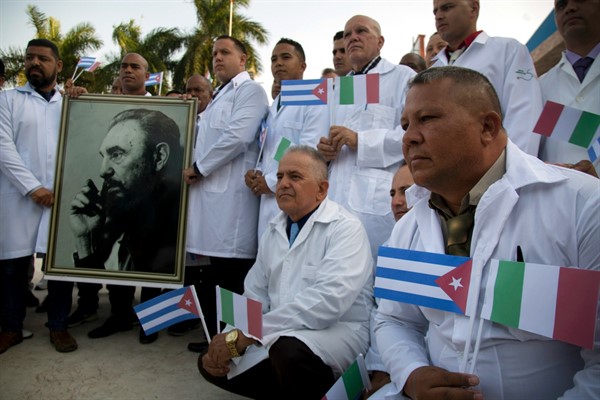Cuba has long promoted its high-quality health care system by sending medical professionals to treat patients in other countries, “a show of soft power that also earns billions in badly needed hard currency,” as the Associated Press recently put it. While some right-wing governments in Latin America have sent their Cuban doctors packing in recent years, Havana is seeing a new surge in demand for its help as a result of the spread of COVID-19. In an email interview with WPR, John Kirk, a professor of Spanish and Latin American Studies at Dalhousie University in Nova Scotia, Canada, discusses Cuba’s response to the coronavirus pandemic both domestically and overseas.
World Politics Review: How has Cuba accelerated its overseas medical assistance program during the coronavirus pandemic? What kind of impact are Cuban doctors having in affected countries?
John Kirk: Cuba’s overseas medical assistance has actually been reduced significantly in recent years, as right-wing governments in Bolivia, Ecuador and Brazil have terminated their agreements with Cuba. In all, some 9,000 medical personnel have returned to Cuba from overseas since 2018. In addition, the government led by Raul Castro has emphasized economic pragmatism in recent years, leading to a reduction in overseas aid missions.

